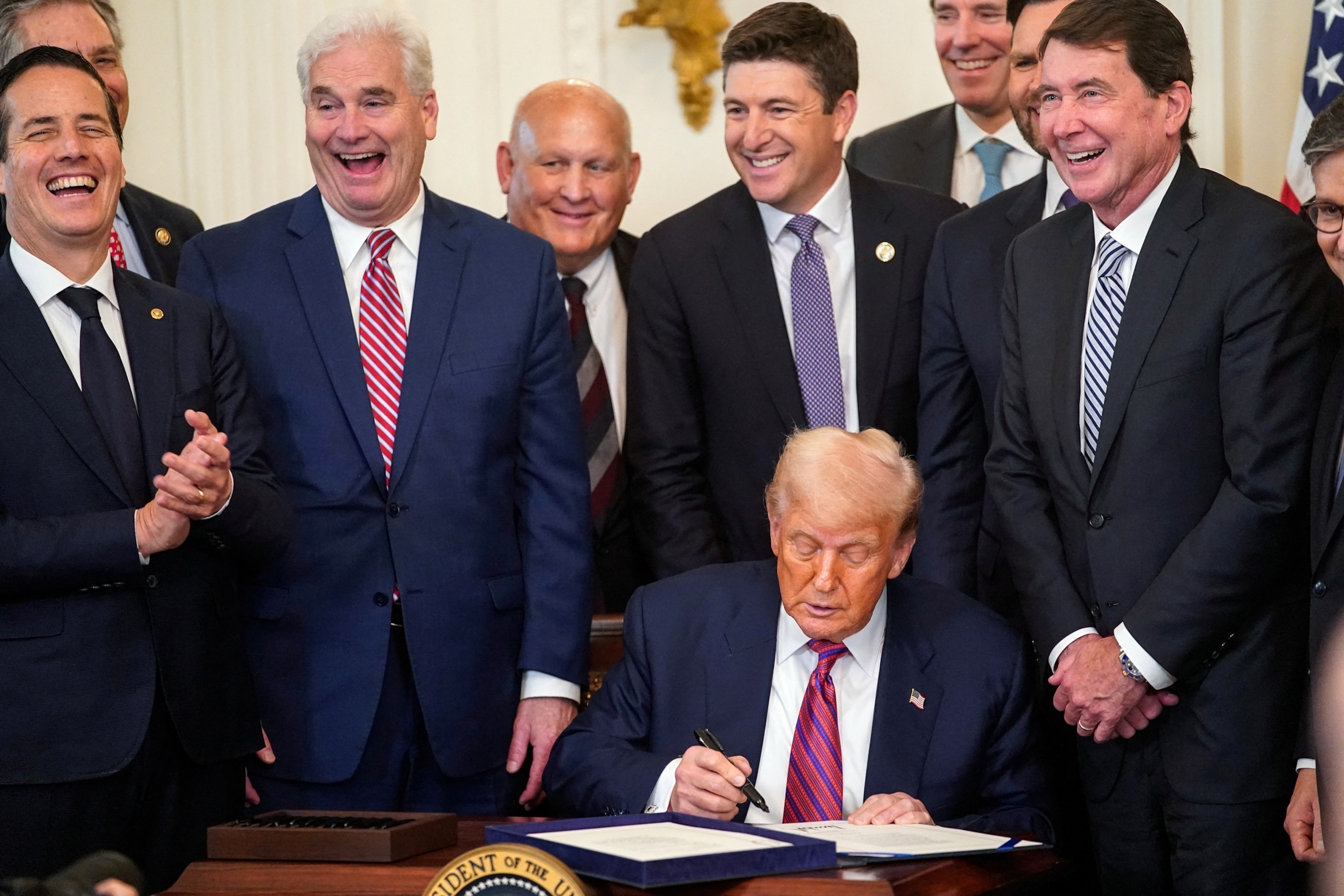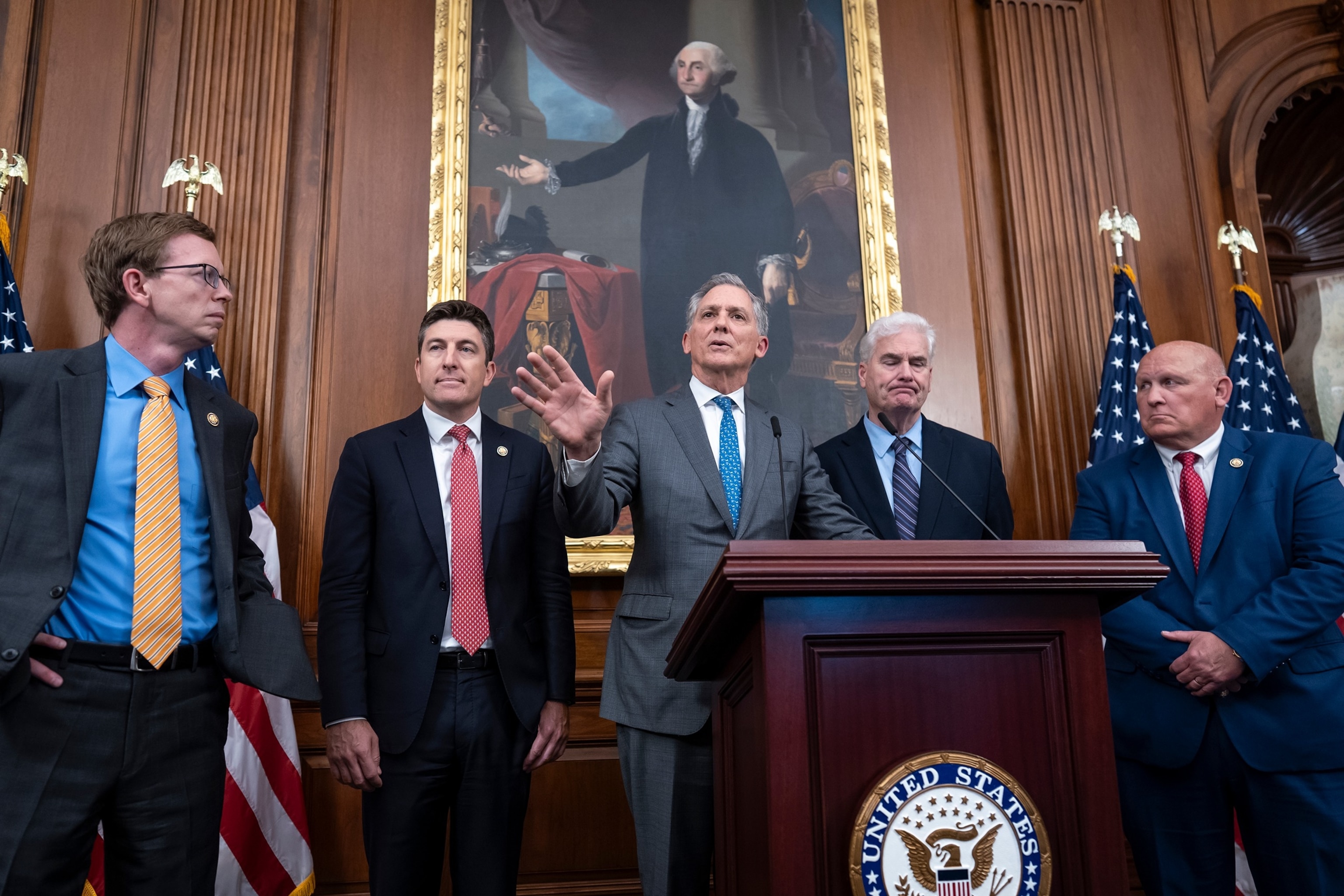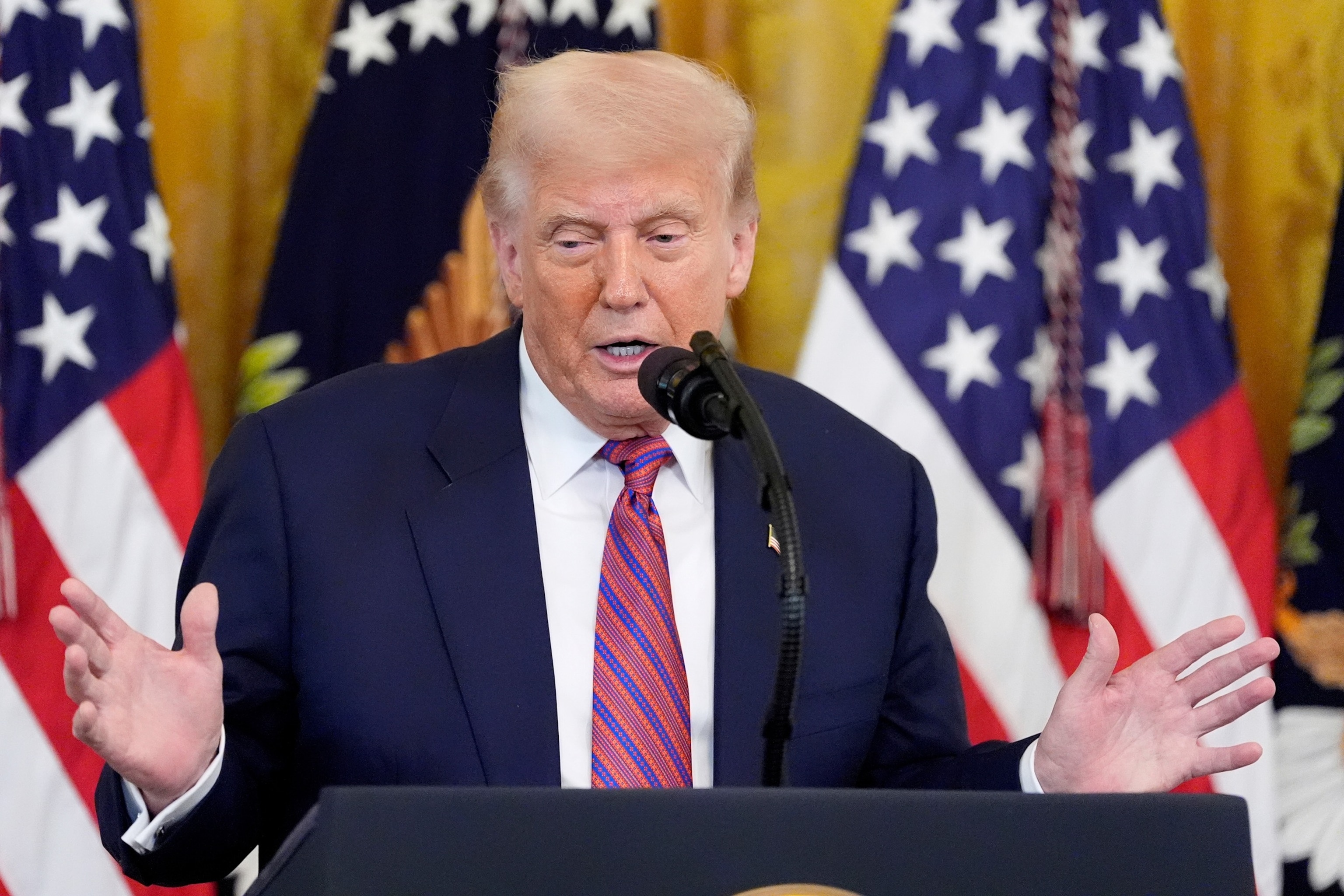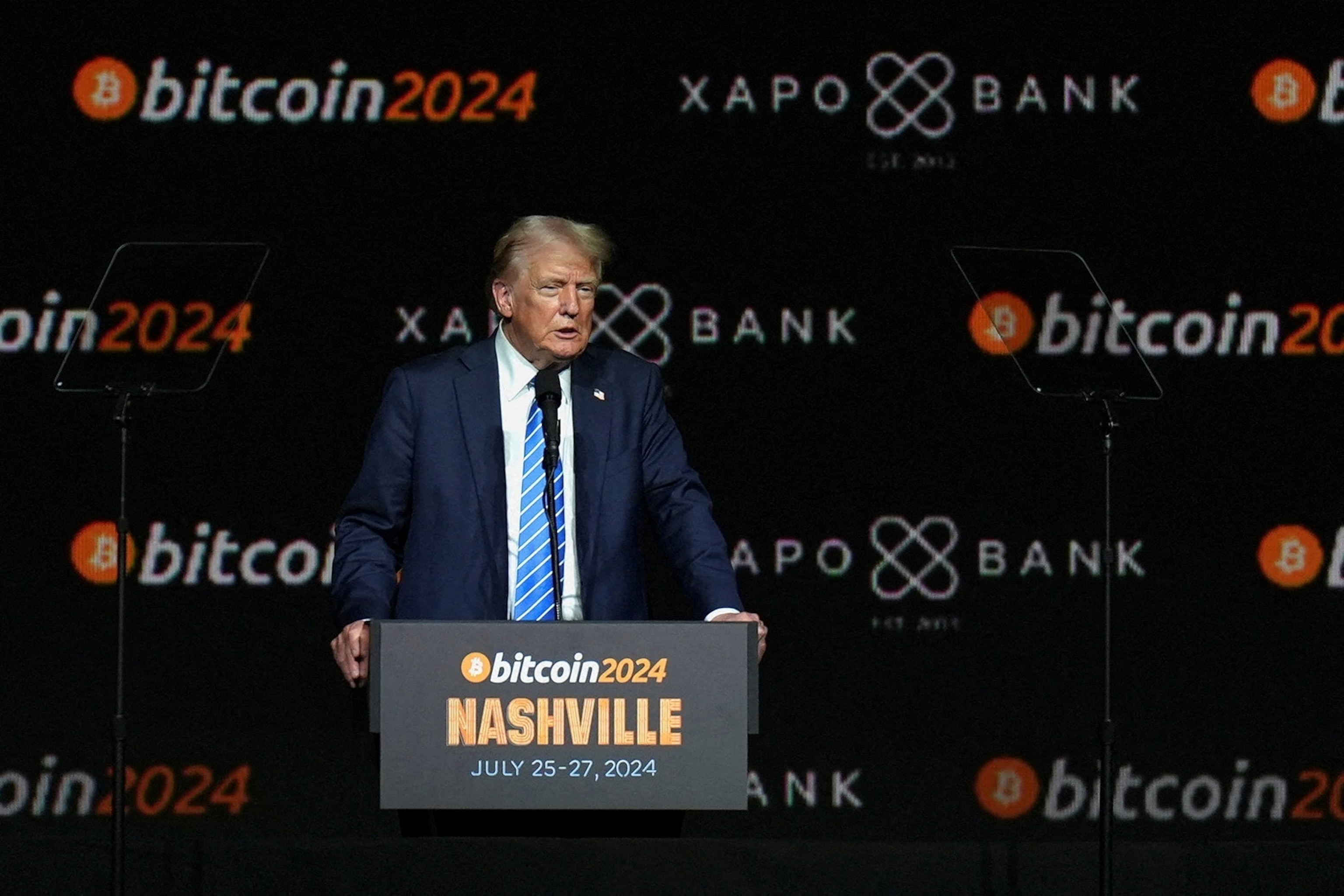President Donald Trump on Friday signed the first major federal law governing cryptocurrency, a business that Trump’s family has begun forging strong ties to and has promoted in recent years.
The House of Representatives passed the GENIUS Act Thursday with bipartisan support, a month after it cleared the Senate. The bill, a key priority for the president, outlines specific regulations aimed at making a specific kind of digital currency called stablecoins more accessible and mainstream.

President Donald Trump signs the “Genius Act”, which will develop regulatory framework for stablecoin cryptocurrencies and expand oversight of the industry, at the White House in Washington, D.C., July 18, 2025.
Nathan Howard/Reuters
Over the last few years, Trump, once a crypto skeptic, has begun to tout himself as the most crypto-friendly commander in chief in U.S. history, and pushed for Congress to take up the issue on the campaign trail. The president, who launched his own crypto meme coin earlier this year, recently said he is a “fan of crypto” and called it a “very powerful industry” that the U.S. has “dominated.”
“I pledged that we would bring back American liberty and leadership and make the United States the crypto capital of the world. And that’s what we’ve done under the Trump administration,” he said at the signing.
Stablecoins are cryptocurrency that have their value tied to a stable asset like the U.S. dollar. The GENIUS Act makes it easier for banks and other entities to issue these coins, and is expected to increase public trust in the assets and growing the industry overall.
Traditionally, buyers use their personal bank accounts to buy a stablecoin, and then use the stablecoin to trade for some other kind of more volatile crypto, such as Bitcoin or something else.
“Our years of diligent work in Congress to bring clarity to payment stablecoins have reached a historic turning point. President Trump called on Congress to send him landmark legislation to his desk by August, and we have delivered,” Republican Rep. French Hill, the chairman of the House’s Financial Services Committee, said in a statement.

House Financial Services Chairman French Hill is joined by, from left, Rep. Dusty Johnson, Rep. Bryan Steil, House Majority Whip Tom Emmer and House Agriculture Committee Chairman Glenn Thompson as they speak to reporters after the House passed three bills intended to boost the legitimacy of the cryptocurrency industry with new regulations demanded by President Donald Trump, at the Capitol in Washington, July 17, 2025.
J. Scott Applewhite/AP
The bill passed following a stalemate among House Republicans after it stalled for nine hours before it made it to a debate.
Although many Democrats, including House leaders, backed the bill, some expressed concerns that the bill doesn’t stop public officials from pushing their personal coins and profiting from anonymous transactions.
Democratic Rep. Maxine Waters, the ranking member of the House Financial Services Committee, slammed the bill, pointing to a firm with ties to the Trump family that recently launched its own stablecoin and could benefit from the currency being more widely used.
A company associated with the Trump family owns a 60% stake in World Liberty Financial, a crypto venture, which launched USD1, a stablecoin pegged to the U.S. dollar, this spring.

President Donald Trump speaks at an event for the signing of the GENIUS Act, a bill that regulates stablecoins, a type of cryptocurrency, in the East Room of the White House, Friday, July 18, 2025, in Washington, D.C.
Alex Brandon/AP
Trump’s image is all over the firm’s website, which once dubbed him “chief crypto advocate” and has since changed his title to “co-founder emeritus.”
“The Unstable Act creates the appearance of a federal framework for stablecoins, but it does not provide the federal government with the full authority it needs,” Waters said Thursday before the vote.
World Liberty Financial said in a previous statement to ABC News that it is “a private company with no ties to the U.S. government.”
Trump and his family have fully immersed themselves in the cryptocurrency marketplace, developing not only the $TRUMP meme coin, but also a bitcoin mining firm and a crypto reserve.
The White House has insisted that there are no conflicts of interest in the crypto ventures, stating that Trump’s assets are in a trust managed by his children.

Donald Trump speaks at the Bitcoin 2024 event in Nashville, Tennessee, July 27, 2024.
Kevin Wurm/Reuters
It will take some time before the public sees changes outlined in the bill. After Trump signs the law, federal regulators will have six months to come up with specific regulations.
The House also passed the CLARITY Act, a market structure package that sets the rules for assets that are overseen by the Securities and Exchange Commission or commodities that are regulated by the Commodities Futures Trading Commission. That measure now heads to the Senate.






